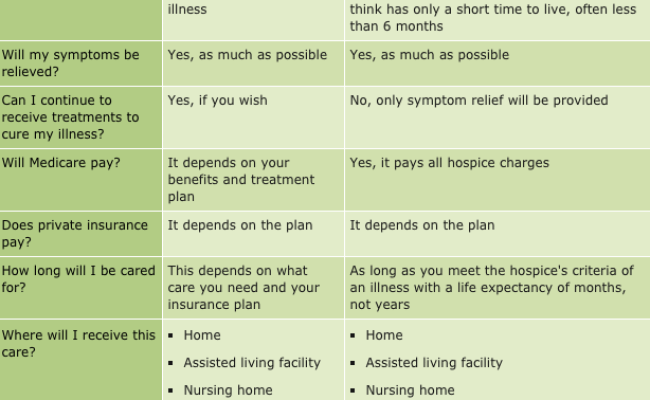
If you like horror comics, you've probably heard of the term Death Rattle. This phrase refers to choking to death and sometimes, gargling. Wiktionary.com gives more details. Here are some examples:
Dyspnea
In palliative care, patients are at a high risk for pain, dyspnea, delirium, and anxiety. Staff and advanced nurses play an essential role in managing these symptoms. To assist in the identification of symptoms, behavioral observation tools and proxy assessments can be used. Dyspnea/death rattle are treated with evidence-based treatments. These symptoms may also be associated with anxiety or depression.

Dysphagia
The relationship between dysphagia and death rattle has been the subject of a number of studies, but there is a significant degree of debate over whether one can be linked to the other. We will be reviewing the role and effectiveness of artificial hydration for managing troublesome respiratory secretions. Researchers found that there was a lot of variation in the practice of treatment, even though most involve hydration-related actions. To increase hydration, the goal is to reduce mucus accumulation and improve upward ciliary motion of respiratory secretions.
Aspiration
Aspiration death rattling is a form of terminal-stage cancer. Aspiration death rattle occurs when gastric secretions from patients build up in their airways or pharynx. This is due to inability to swallow properly or cough properly. It increases the risk of aspiration when foreign bodies enter the mouth. There is little information available about aspiration, especially in elderly patients. Possible causes of the aspiration death rattle include tracheobronchial foreign matter aspiration.
Artificial Hydration
If you are worried about the effects of artificial hydration on a patient's death rattle, you're not alone. Connie Holden, an inpatient palliative care nursing nurse, has seen three cases where death rattles due to dehydration. An elderly woman suffering from "dwindles" became unable to drink and eat and was admitted into a hospice.
Dyspnea causes death rattle
Dyspnea that causes excessive salivation in the lungs is among the most common. Healthy people produce about two liters of saliva every day. A buildup of bronchial mucus is another cause of death rattle. Death rattle causes a reduction in consciousness, impairment of swallowing, and difficulty clearing secretions from oropharynx, trachea, and the trachea.

Options for treatment
There are two options for treating death rattle: anticholinergic medication and cough suppressants. These drugs will not be effective against existing mucus. They can however reduce it prophylactically for patients who have this condition. Anticholinergic drugs are less effective in reducing the volume of mucus already present. They are also less effective when administered after the onset or progression of death rattle. Although death rattle can be distressing for patients it is not always life-threatening.
FAQ
What are the three main goals of a healthcare system's healthcare system?
A healthcare system must have three main goals: to provide affordable care, improve patient outcomes, and reduce costs.
These goals have been incorporated into a framework known as Triple Aim. It is based on research by the Institute of Healthcare Improvement (IHI). IHI published it in 2008.
This framework is based on the idea that if all three goals are viewed together, each goal can be improved without compromising another.
They don't compete against each other. They support each other.
As an example, if access to care is improved, fewer people die from inability to pay. This reduces the cost of care.
The first goal of providing affordable healthcare for patients is achieved by improving the quality care. And it improves outcomes.
What are the differences between different types of health insurance
There are three types main types of health insurance.
-
Private insurance covers the majority of your medical costs. Private companies often offer this type of insurance. You only pay monthly premiums.
-
Although most medical costs are covered by public insurance, there are certain restrictions. Public insurance doesn't cover everything.
-
You can use medical savings accounts (MSAs), to save money for future healthcare expenses. The funds are saved in a separate account. Most employers offer MSA program. These accounts are non-taxable and accrue interest at rates similar that bank savings accounts.
What are medical systems?
Medical systems were designed to make people live longer and more healthy lives. They make sure patients receive the best care when they need it.
They make sure that the right treatment is provided at the right time. They give doctors the information they need to provide the best advice for each patient.
Statistics
- About 14 percent of Americans have chronic kidney disease. (rasmussen.edu)
- For the most part, that's true—over 80 percent of patients are over the age of 65. (rasmussen.edu)
- The healthcare sector is one of the largest and most complex in the U.S. economy, accounting for 18% of gross domestic product (GDP) in 2020.1 (investopedia.com)
- For instance, Chinese hospital charges tend toward 50% for drugs, another major percentage for equipment, and a small percentage for healthcare professional fees. (en.wikipedia.org)
- Consuming over 10 percent of [3] (en.wikipedia.org)
External Links
How To
How to find home care facilities
People who need help at home will benefit from the services of home care providers. This includes elderly people who do not want to leave their homes, disabled people who cannot move around independently, and those who suffer from chronic illnesses such as Alzheimer's disease. These services include personal hygiene and meal preparation, laundry, cleaning as well as medication reminders and transportation. They often collaborate with rehabilitation specialists, social workers, and medical professionals.
The best way to find a home care service provider is through recommendations from friends, family members, local businesses, or online reviews. Once you have identified one or more providers, you should ask about their qualifications as well as their experience. It is important to find a provider who can work flexible hours in order to fit your schedule. Also, make sure they offer emergency assistance 24/7.
Your doctor or nurse might be able to refer you. If you don’t know where to begin, search online for “home health care” or “nursing home”. For example, you could use websites like Yelp, Angie's List, HealthGrades, or Nursing Home Compare.
To get more information, call your local Area Agency on Aging and Visiting Nurse Service Association. These agencies will have a list that lists local agencies that provide home care services.
It is crucial to find a quality home care agency, as many charge very high fees for patients. In fact, some agencies charge up to 100% of a patient's income! You can avoid this by choosing an agency that is highly rated by the Better Business Bureau. Ask for references from previous clients.
Some states require home care agencies registered with the State Department of Social Services. Find out the requirements for agency registration in your area by contacting your local government.
Consider these factors when looking for a homecare agency.
-
Be wary of any company that asks you to pay upfront before receiving services.
-
Look for a reputable and well-established business.
-
If you are paying out of your own pocket, get proof of insurance.
-
You must ensure that the state licenses your agency.
-
Get a written contract that outlines all costs involved with hiring an agency.
-
Confirm that after discharge, the agency will provide follow-up visits.
-
Ask for a list of credentials and certifications.
-
Do not sign anything without reading it first.
-
Pay attention to the fine print.
-
You should verify that the agency you are dealing with is insured and bonded.
-
Ask how long the agency has been operating.
-
Verify that your agency is licensed by the State Department of Social Welfare.
-
Find out if the agency has received any complaints.
-
Call the local government agency that regulates homecare agencies.
-
Make sure that you are able to get answers from the staff member who answers the phone about home care.
-
Ask your lawyer or accountant for tax advice on the use of home-based care.
-
Always get at least three bids for each home care agency you contact.
-
Do not accept a lower bid than the best, but at least $30 per hour.
-
Keep in mind that you might need to pay more than one home care agency visit per day.
-
It is important to carefully read contracts before you sign them.